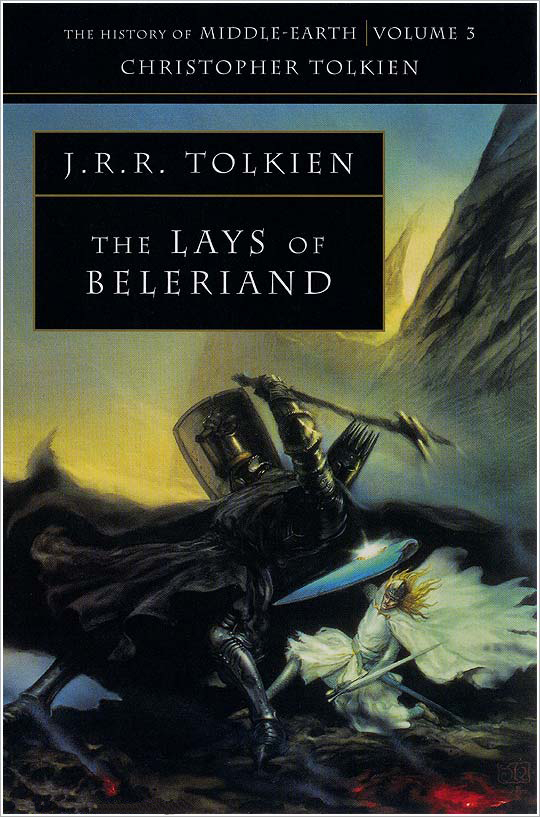
The Lays of Beleriand is the third volume of the twelve volume set of The History of Middle-Earth that I’m planning on reading in its entirety. This book consists of two fairly long poems, The Lay of the Children of Húrin, and The Lay of Leithian. Which, the latter was abandoned and not finished.
For starters, I’m not a big fan and will ever be a fan of poetry (I prefer more traditional story telling). However, reading these long poems was not terrible. The poems are broken into chunks which Christopher Tolkien then describes his literary analysis. His analysis is extremely detailed, it practically covers the poems line-by-line. Christopher Tolkien summaries the poems into a very cohesive and understandable manner, and describe its difference and influence between the lays, The Book of Lost Tales, and The Silmarillion. It’s quite remarkable the amount of detailed information that he gives us. A relatively simple example, is how a certain river was first mentioned, and how it ended up becoming part of the world. You will definitely learn a lot of the actual literary history of Tolkien’s work by reading this book.
In a time line, The Book of Lost Tales was first, then afters The Lay of the Children of Húrin, and The Lay of Leithian. Tolkien’s awesome mythology come into existence by these two variations, culminating into the epic masterpiece of The Silmarillion.
Although Tolkien abandoned it, I’ve enjoyed more The Lay of Leithian over The Lay of the Children of Húrin. In The Silmarillion, Sauron plays a major role in the tale of Beren and Lúthien. Between The Book of Lost Tales, and The Lay of Leithian, one of the major difference between them, is that in The Lay of Leithian, we see a certain character that ultimately ends up becoming Sauron in The Silmarillion. It was awesome reading and knowing the difference and relation The Hobbit and Lord of the Rings made the final version of The Silmarillion that I so love.
Also worth mentioning that this book includes some additional literary analysis of C.S. Lewis, since he was fortunate to read some of the very early unfinished writings of The Lay of Leithian.